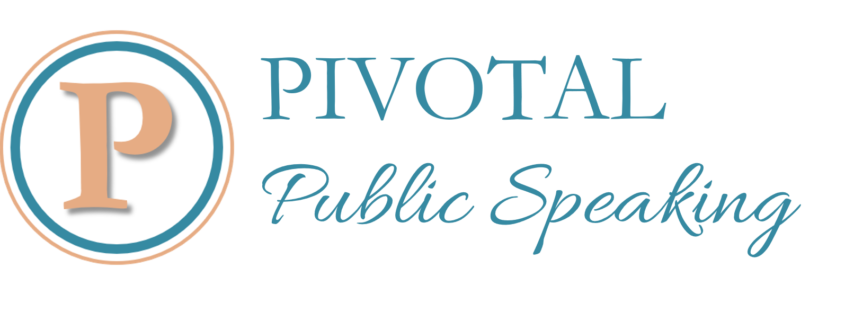[Quick Public Speaking tip] WAIT! Don’t start talking until you are ready

You probably know that the first seconds of your presentation are vital.
In those seconds you have an opportunity to make an impression that will stay with your audience long after the speech is finished and you have all left the room.
Yes … that important!
So the next piece of advice from most writers on the subject of public speaking will be to make your opening words unforgettable.
Grab attention, connect with the audience, create an emotion – all of those things.
And yes that is vital.
But I want you to step back a bit first.
Before you open your mouth, you will appear in front of that audience.
You may walk to the front of the room, onto the stage, or to the head of the table.
You may stand in place.
You may simply speak from wherever you are.
Before you even open you mouth, you are communicating, you can choose deliberately communicate.
If you start talking before you are settled in place, make it good, make it deliberate, make it upbeat or it will be lost. It’s a great tactic. But only if it’s planned and deliberate. If it’s not deliberate, if you are talking because you are nervous, or want to make a good impression, or are not sure what to do with yourself before you begin, then WAIT.
There is nothing wrong with making your audience WAIT as well.
It signals confidence, calm and control. And every audience wants that. You can communicate energy if you want, but you don’t need to use words to do that. Use your body language, your gestures and your face.
Make everything you do deliberate and focused.
Either focus on getting to your beginning position or add in some deliberate communication. At the very least you could use a facial communication. Smiling is good because it also helps build your own feeling of confidence.
Taking this technique to its fullest, stand or sit still, without talking, without gesturing.
This is a moment or a period of power for yourself. It allows you to build your confidence. It also allows you to engage with your audience. This is fairly unusual. Most presenters dive straight into their presentation. So you are creating some mystique as well. Eye contact is a powerful tool here too.
But basically. whatever you do, avoid nervous filler words at this beginning stage of your speech or presentation. Make it very deliberate and very focussed, and watch your engagement, your confidence, your success skyrocket.
Discover more from Bronwyn Ritchie - Pivotal Public Speaking
Subscribe to get the latest posts sent to your email.




